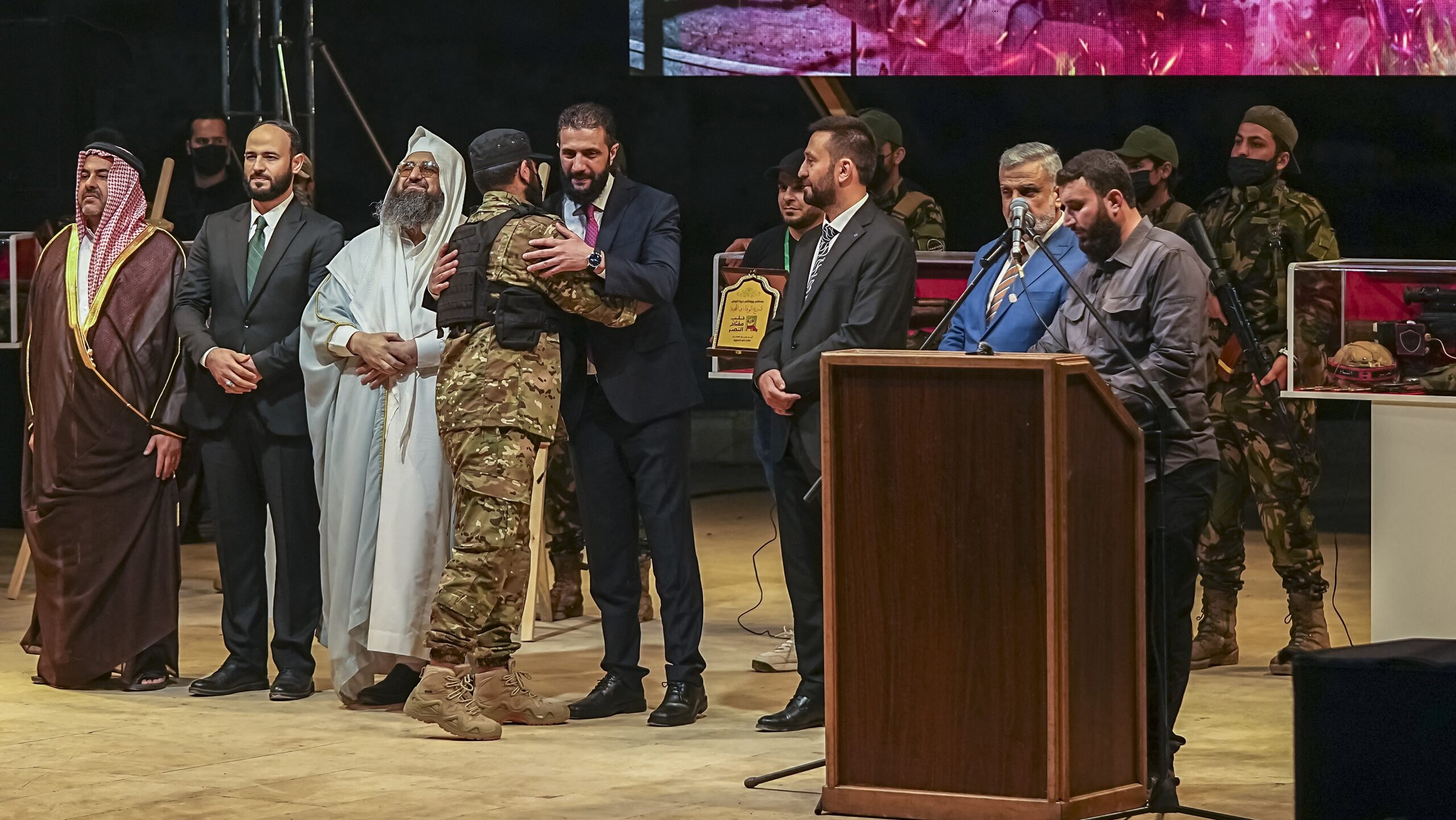Al-Sharaa Declares New Phase for Syria in Aleppo Citadel Speech
Syrian President Ahmed al-Sharaa declared the end of the country’s war and the start of a national reconstruction campaign during a public event at the historic Aleppo Citadel last week. Speaking to a crowd of thousands, al-Sharaa proclaimed Aleppo to be the “key to Syrian victory,” in what officials framed as a symbolic and political turning point for the war-torn nation.
The event, titled “Aleppo: Key to Victory,” was held at the amphitheater of the ancient citadel overlooking the city. Al-Sharaa described the occasion as marking the “completion of the liberation battle” and the formal transition to a phase focused on rebuilding, development, and economic revival.
“The liberation battle has been accomplished,” he said. “The country has now entered the reconstruction phase.”
Aleppo, once Syria’s largest city and economic hub, became a major battleground in the country’s civil war, suffering extensive destruction during years of fighting between government forces and opposition groups. The city was recaptured by Syrian government forces in late 2016 with the backing of Russian air power and Iran-backed fighters. While most of western Aleppo has since returned to government control, much of the city remains heavily damaged and underpopulated.
In his address, al-Sharaa praised the fighters who helped “liberate” the city and declared the next battle to be one “against poverty.” He called on citizens to take part in the reconstruction effort, urging them to embrace their roles as workers, innovators, and nation-builders.
Give the gift of hope
We practice what we preach:
accurate, fearless journalism. But we can't do it alone.
- On the ground in Gaza, Syria, Israel, Egypt, Pakistan, and more
- Our program trained more than 100 journalists
- Calling out fake news and reporting real facts
- On the ground in Gaza, Syria, Israel, Egypt, Pakistan, and more
- Our program trained more than 100 journalists
- Calling out fake news and reporting real facts
Join us.
Support The Media Line. Save democracy.


“Your land has been liberated, your glory has been restored, and your place in the region and the world has returned,” he said. “The chains have been broken, and the obstacles to development have been lifted. So roll up your sleeves, master your craft, and unleash your creativity.”
Calling Syria “the East’s opportunity in a time of ruin,” the president framed the coming era as a collective national mission. “Let us unite and seek God’s help in building a bright future for an ancient country and a people who deserve it,” he said.
He closed with a call for relentless national effort: “We neither rest nor tire until we rebuild Syria anew and proudly present it to the world, by the will and power of God.”
Aleppo’s symbolic importance in Syrian political life was central to the messaging of the event. Historically regarded as Syria’s cultural and industrial capital, Aleppo has been a bellwether for national stability. Its geographical position as a key transit point in the north, linking Syria to Turkey and other regional trade routes, further enhances its strategic relevance.
Economically, Aleppo was long considered the industrial heart of Syria, home to factories, merchants, and artisans. Its recovery is seen as vital to any meaningful economic rebound.
Politically, al-Sharaa’s visit reflects a shift in presidential discourse—from military triumph to civic revival. It also reasserts Aleppo’s role in the evolving narrative of the state under new leadership.
The city’s relationship with Syria’s presidents has varied over time. During the tenure of President Shukri al-Quwatli, who was president from 1943 to 1949 and again from 1955 to 1958, Aleppo was a hub of nationalist resistance against the French Mandate. Under President Hafez Assad, from 1971 to 2000, it saw major industrial investments, including the development of the Sheikh Najjar Industrial Zone. President Bashar Assad, who served as president from 2000 to 2024, oversaw significant urban development projects prior to the war and emphasized the city’s recovery after it returned to government control in 2016.
Now, President al-Sharaa’s administration appears intent on positioning Aleppo as both a symbol of resilience and a launch point for broader national regeneration. With the speech at Aleppo Citadel, the government hopes to project unity, stability, and readiness to reengage with the international community.

